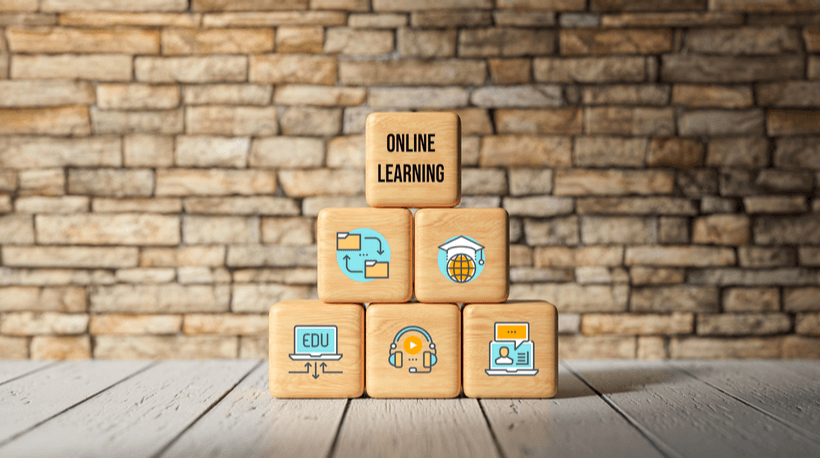The Why eLearning Modules Are Dead Case
“Who would commit such a horrific crime?” I hear you yell as one... well, I'm sure one of you at least thought it... Maybe.
Anyway, let’s start our investigation with the unassuming victim.
eLearning Today
The best of today’s eLearning modules have learnt from past excesses. They still embrace an engaging, highly visual approach, but also incorporate recent understanding of cognitive load, strategically combining text, audio, and images for greater effectiveness.
From an instructional perspective, they use knowledge checks, scenarios, branched narratives, and gamification. They extend rapid eLearning tools to the limit, so they can increase interactivity and reduce the dreaded “Next” button fatigue. Some even allow learners to assess first, so they can access the support they actually need rather than going through the entire “sheep dip” experience.
In effect, eLearning modules have matured through their heady “Flash driven teenage days” and are in the prime of their life... which makes their inevitable demise even more tragic.
Enter 70:20:10 Stage Left (Armed and Dangerous)
When we get past the distractions of debating ratios, we can focus on the fact that 70:20:10 is essentially a mindset change, championed by the likes of Charles Jennings and Jane Hart.
It represents a growing understanding that learning is not something that primarily happens to people at events or in front of eLearning modules; it's something that people own and experience continuously, with other people, in their life and work.
New Challenges for Learning And Development
Learning and Development professionals are beginning to support this change - creating learning ecosystems that empower learners by deepening experiences and reflect on them, while encouraging rich interactions with peers/ mentors/ and coaches.
Many in Learning and Development have embraced the fact that formal learning doesn’t do the heavy lifting in learning, but let’s not swing the pendulum too far because formal learning still has an important role to play.
In part, formal learning must become the scaffolding to support learners as they develop the mindset, skills, and culture to be continuous learners. But more than that, the real challenge lies in how we can liberate formal learning from its existing confines (in an Learning Management System or classroom) and allow it to seep into the moments and places where learners actually learn: in their workplace, with their peers, and in the time of need.
Done right, formal learning can add tremendous amounts to a blend, including:
- Priming mindset and/or directing focus of learners;
- Introducing high level core concepts or frameworks (possibly through case studies or worked examples); and
- Providing just-in-time and just enough performance support.
Those of you paying attention might have noticed the clue to our murder case... we now have motive.
eLearning Modules Are Dead (The Motive)
Consider your own experience. You’re about to do something new or challenging - where do you go for help? Maybe you’ll ask a colleague? More of us would Google it; from there we’d seek out summaries, tips, or even short instructional videos.
Have you ever, in your life, used an eLearning module as a just-in-time resource? Have you ever voluntarily gone back to do an eLearning module just to reinforce its learning? I've been asking these questions of clients and I keep getting a resounding “no”.
It’s not the eLearning modules fault, it's hard not to look cumbersome and tired in a world where:
- Wearable technology is bringing forth new opportunities for contextual learning;
- The Experience API offers the enticing prospect of closing the loop on learning and performance; and
- Initiatives like Deakin University and IBMs Watson project hint at how intuitive, continual learning technology can support us in ways we never thought possible (or, for those who are a little more paranoid, how it might become Skynet and wipe out humanity in a post apocalyptic Terminator like scenario!).
Having rattled off those amazing advances. I’m going to highlight the obvious pitfall: We won't create 70:20:10 experiences by focusing on technical fixes, but they’ll certainly play their part in supporting the required changes.
From The Blended Learning Trenches
From a personal perspective I’ve found that my work designing digital elements of 70:20:10 inspired blends at DeakinPrime has begun to lead us down the path of mobile apps rather than traditional eLearning modules. But even from a low tech perspective, I’ve found myself focusing on creating online checklists, cheat sheets, and short videos.
An eLearning module might serve as the initial container of these resources -providing context, motivation, and a demonstration of how they might be used via an engaging scenario- then, like cracking an egg, the module is disposed of and the assets become part of the learner's ongoing toolkit.
eLearning modules, despite their many strengths, seem too “closed” and inflexible to fit into the more pervasive learning era we are striving towards. They’ll probably live forever in small pockets such as compliance, but for large blended programs that support 70:20:10 I’m starting to think that the trigger has been pulled and their days are numbered.









